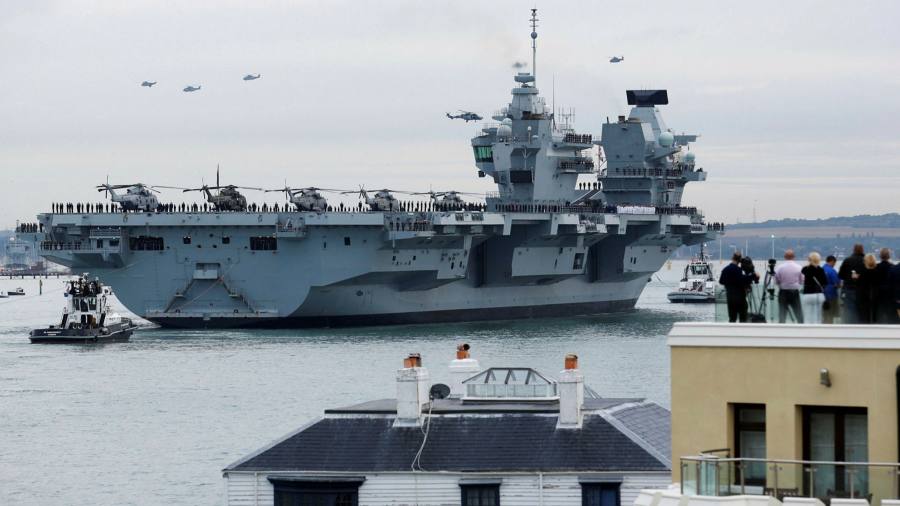[ad_1]
Three months after its post-Brexit transition period ended, Boris Johnson’s government is finally adding flesh to its vision of “Global Britainâ€. Its more than 100-page review of security, defence, development and foreign policy sets the goal for the UK to be a “problem-solving and burden-sharing nation with a global perspectiveâ€. Yet there is a Johnsonian, have-your-cake-and-eat-it quality to this image of Britain as pocket-sized superpower.
There is much to commend in the framing of the challenges the UK faces, and its aims. A commitment to building up technological resilience and science policy, notably in countering a rising China, is welcome. So is the recognition, after the pandemic, that security threats can take unforeseen forms.
The review is right to balance making the most of Britain’s soft power — harnessing its creativity in the arts and science — with bolstering hard power by funding “next generation†weapons, though lifting the cap on nuclear warheads raises eyebrows. The pledge to reverse cuts in foreign aid — one of Britain’s most effective soft power tools — once financial circumstances allow, is one Johnson should stick to.
Recognition that Russia is the most acute threat to UK security reflects hard realities, though the language around China is ambiguous. A tilt to the Indo-Pacific makes sense, even if it is mainly a cover for opening markets.
Yet there is a mismatch between the scale of ambition and the resources and capabilities available. The vision perpetuates the flawed assumption, dating back decades, that the UK can maintain a “full-spectrum†military capability — from troops to an expeditionary force, and an expanded nuclear deterrent. The result will be resources continuing to be spread too thinly.
More realistic would be to accept the UK’s role as a sizeable European power, with global interests. Beyond the challenge from Beijing, most threats the UK faces — Russia, Islamist or far-right terrorism, uncontrolled migration, cyber attacks by Iran or North Korea — are shared with its European neighbours. The starting point should be for Britain to be a solid European pillar of Nato.
US officials have suggested they would favour the UK focusing on the north Atlantic, European mainland and Mediterranean, allowing America to concentrate more of its own capacity in Asia. The planned deployment of the Royal Navy’s new, flagship aircraft carrier to east Asia might be a chance to signal resolve to China, and cement alliances through joint exercises with Japan and others. But, with borrowed US aircraft to fill its flight deck, it risks being a symbol, too, of overstretch.
The “Indo-Pacific tilt†also obscures a sizeable hole at the heart of the document — any vision for co-operation with the most important partner for Britain’s safety: Europe, and in particular the EU. Brexit opens possibilities for independent policy and action, but should not mean antagonising or circumventing the EU. Johnson’s government seems intent instead on a combative trade relationship with Brussels; the review came just 24 hours after the EU launched legal action against the UK over implementation of the Northern Ireland protocol. While there is merit in working closely in the “E3†with Germany and France, moreover, this should be a way of enhancing UK clout within the EU, not engaging with capitals to bypass EU institutions.
For all its positives, the review reflects a government reluctant to concede that it cannot have everything — as in the Brexit negotiations, and much of its pandemic response. Building “Global Britain†will require difficult trade-offs between what it can credibly achieve, and the resources available.
[ad_2]
Source link





